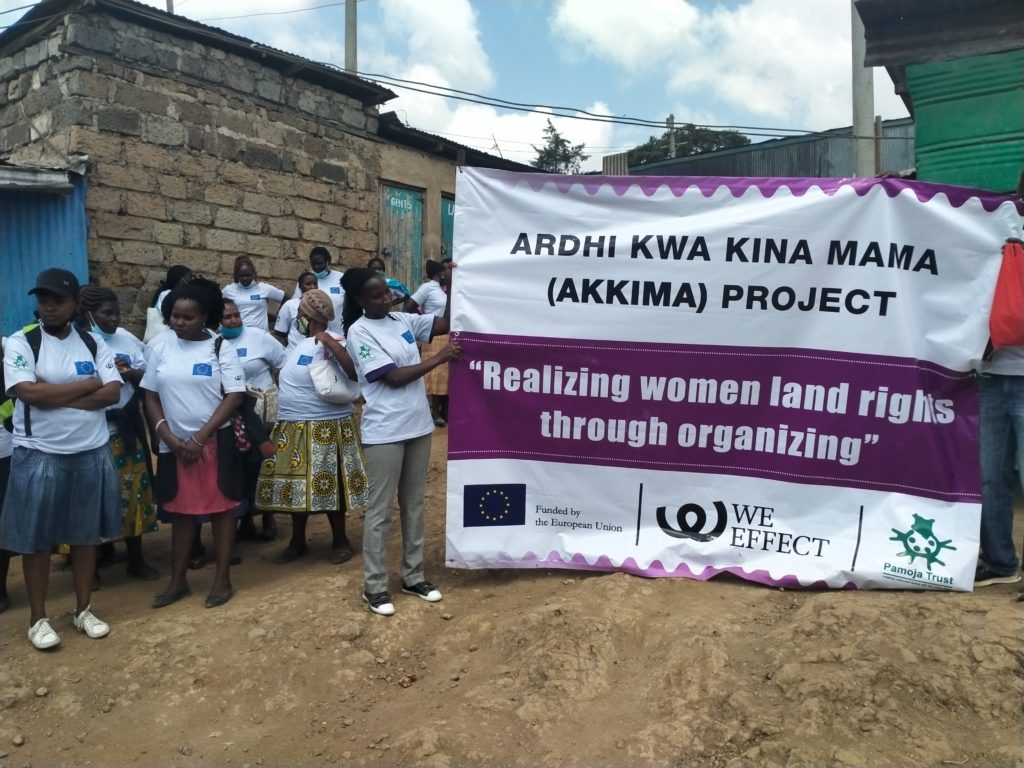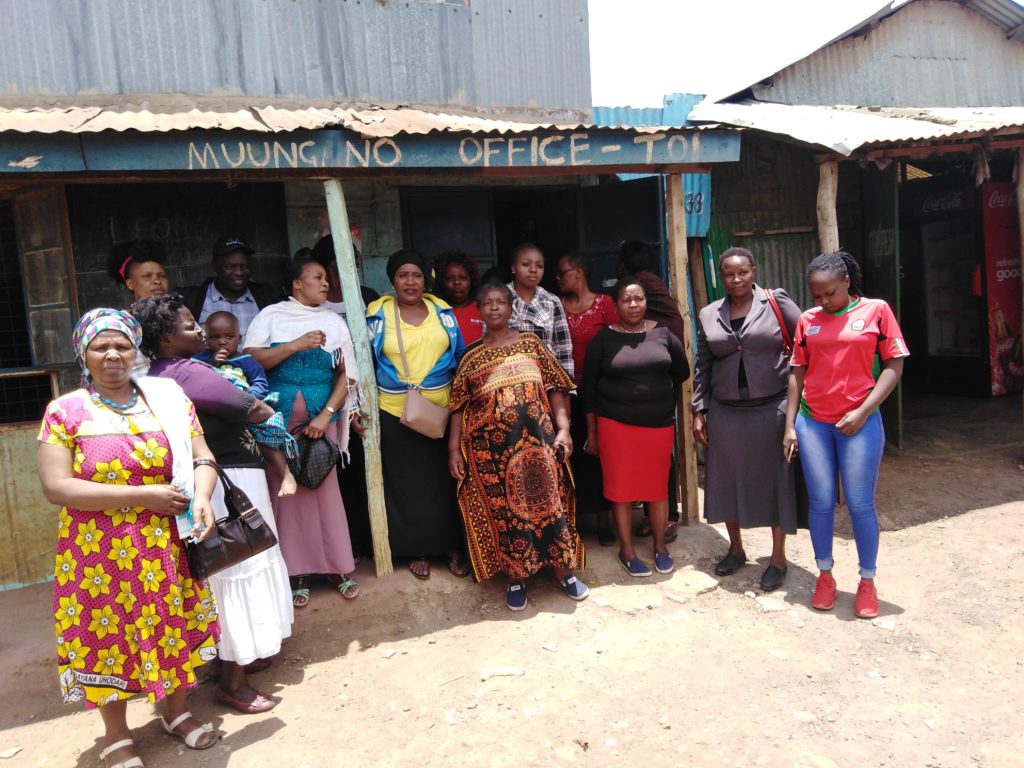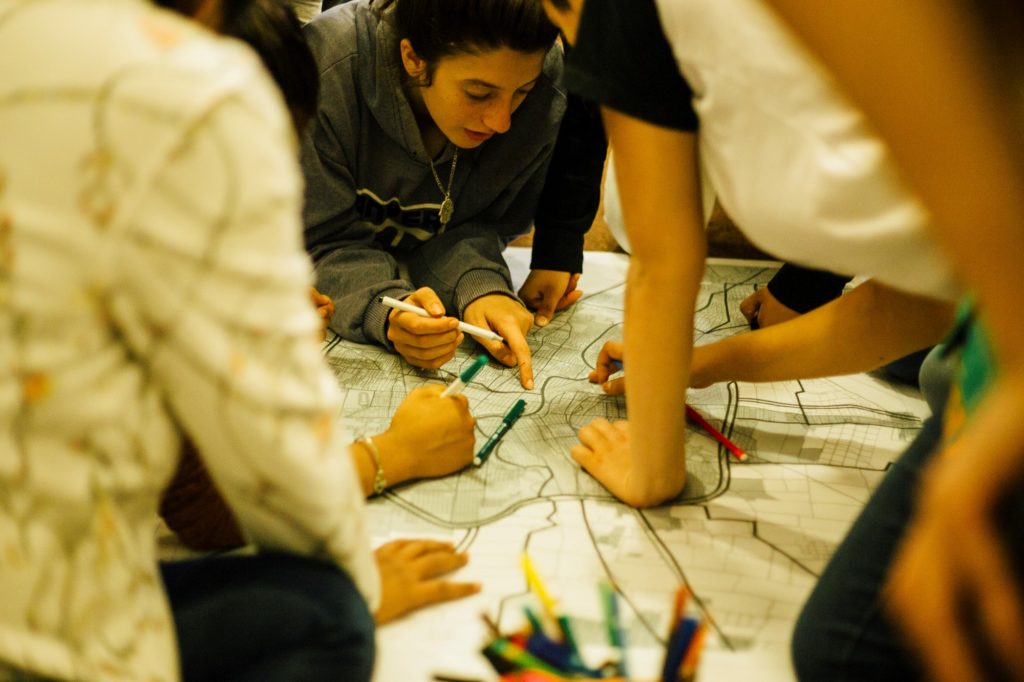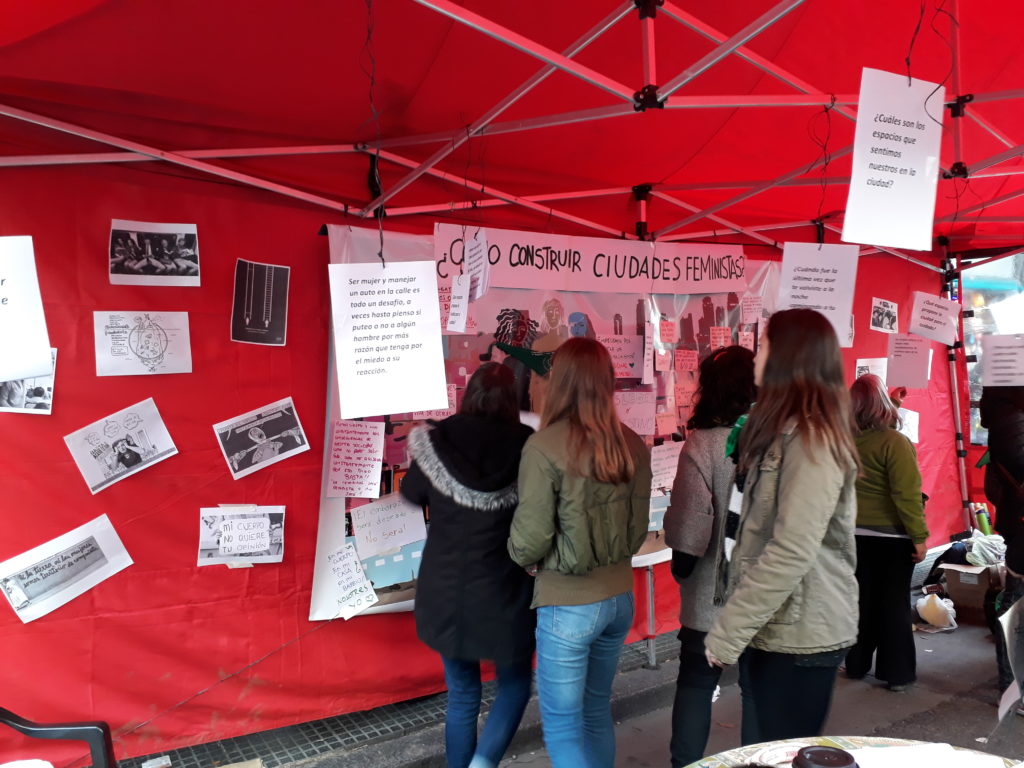Lessons and experiences from Africa, Latin America and the Middle East on the application of a gender-responsive approach to urban and territorial issues
It is a fact that gender inequality and marginalization is experienced across all corners of the world. This is according to the latest report by UN Women, which reveals how, in the context of the pandemic, women and girls have suffered disproportionately from the socio-economic consequences of COVID-19. This persistent gender gap has prompted attention to be paid to the development and adoption of gender-responsive approaches to urban and territorial issues. The efforts, in many cases led by civil society, to provoke a change in the issues that increase the vulnerability of women, especially in urban informal areas, varying in scale, resources and commitments, are evidence of this.
From the aim to learn and exchange different practices that can serve as inspiration for others emerged the Habitat International Coalition Co-Learning spaces initiative. It is an initiative that is developed through regular meetings that bring together and facilitate a range of HIC Members from different contexts. As a result, grassroots and social organizations from all over the world are building a social force through the exchange of political, educational and advocacy strategies related to different themes, one of them being feminist approaches to habitat.

Women Land Rights Movement marking the 2021 International Women’s Day in Nairobi. Source: Pamoja Trust, 2021
Why feminist approaches to habitat?
With a fast-increasing rate of urbanization, more than half of the world’s population currently live in cities and urban areas. Cities — especially but not only in the global south — are characterized by a concentration of significant inequalities. The gap in inequalities within the population has led to the formation and growth of so-called informal settlements, which are no more than neighbourhoods created by the people, but where inhabitants grapple with a diverse range of socio-economic challenges that include access to land and housing, as well as a lack of access to basic services.
The harsh realities of gender inequalities manifest themselves strongly in informal settlements and neighbourhoods, where the population is generally at most risk, and are considered second-class citizens: poor structural quality of housing, overcrowding, dangerous locations and insecure tenure. While these so-called informal settlements are host to communities that are in vulnerable situations in general, it is women and girls that often bear the extra burden, as gender inequalities are exacerbated. This is often due to the intersectionality brought about by age, marital status, social status, ethnic background, religion, disability, and income.
As a counterbalance, cities also generate positive and transformative collective initiatives, which are taking place across the world, to encourage a feminist approach to habitat. Many are led by women and different types of organized social groups, who have been driving experiences that aim to create more inclusive cities and neighbourhoods for decades.
Amplifying the Voice of the Kenyan Urban-Poor Woman; the case of the Kenya Women Lands Rights Movement (WLRM)
If we travel to Kenya, we see that women generally grapple with a range of challenges. One of these is brought about by the culture and attitudes towards gender roles and norms, particularly in relation to land and home, which further worsen this situation, as they inhibit women’s participation, leadership, decision-making and safety, among others. The long history of land-related inequalities and injustices has been escalated by the lack of knowledge, understanding and awareness of the rights to land that women enjoy, as well as the constant lack of female participation in decision-making at the community and government levels. Such challenges have manifested in various ways that include forced evictions, unemployment, culture and traditions, dispossession of land and home through government projects; all of this in addition to a lack of participation in democratic spaces.

WLRM leaders after a meeting. Source: Pamoja Trust, 2019
In this context, the Pamoja Trust, a civil society organization in Kenya, has committed to developing approaches and models that promote the right to the city for all, including women and other marginalized groups. The organization seeks to promote the improvement and attainment of tenure security, based on the experience of applying fit-for-purpose land tools and approaches.
One of these favourable, gender-responsive strategies is the formation of women-led structures to advocate for impactful change in the matter of women’s land rights. It is in this way that the Women Land Rights Movement emerged, which has amplified the voices of women living in informal settlements in Kenya, particularly in contribution to the planning and design of the spaces they occupy.
The Women Land Rights Movement has emerged as a space through which women’s voices and participation are amplified and women’s land inequalities and injustices are made visible
Composed of a collective of women representing the two biggest cities in Kenya, the movement forms an active space of engagement, participation and influence of gender-responsive practices and policies in land management and administration. This space actively positions women to take part in decision-making in support of gender equality, participating in government development interventions.
The Women Land Rights Movement participates, among others, in urban planning processes to determine the planning of their spaces, as well as influence urban service priorities. This has been mainstreamed in the adaptive planning methodology, which seeks to navigate conventional planning barriers and essentially shift the planning power to communities and particularly to women. In doing so, women are positioned to collectively participate, amplify their voices and concerns, as well as influence decisions in the urban planning processes.
The participation of the women’s movement in such planning processes provides greater assurance that attention is directed to gender issues, which cover a wide range of key themes that include employment opportunities, education, participation in democratic spaces, discrimination, safety and security, income opportunities, and gender-based violence (GBV). The empowerment of women and their participation in decision-making have an impact on ensuring that emerging plans are able to respond to such issues in a more inclusive and just manner.
The Women’s Agenda for the City in Latin America; an agenda that advocates for a shared city, with rights and gender equality
Why not erase the idea of the city we fear and imagine a feminist city? The project “Voices of diverse women for safe, inclusive and sustainable cities” was born with this proposal: to hear from women what a city that belongs to them and guarantees their rights would be like.

CISCSA is a not-for-profit NGO based in the city of Córdoba (Argentina). Source: Bahía Flores and CISCSA
This initiative, launched in March 2019 with the Women and Habitat Network of Latin America, involved female residents from different working class neighbourhoods in the city of Córdoba, Argentina, convened by CISCSA – Ciudades Femnistas, together with five other Latin American organizations (Corporación SUR from Chile, Asociación AVP from Colombia, Centro Flora Tristán from Peru, Colectiva Feminista from El Salvador and Fundación Guatemala).
Thanks to the women involved in this joint exercise, developed through reflection sessions, a process emerged with diverse and enriching contributions from different participation trajectories and membership of feminist organizations and groups. This process gave rise to the Women’s Agenda for the City in Latin America, an advocacy document that advances on issues such as cities without violence against women; urban mobility with a gender perspective; services and facilities for everyday life; economic autonomy for women; policies and programmes with a gender perspective; parity as a goal; the social integration of migrant, displaced and refugee women; and addressing environmental risks.
This initiative seeks to enrich debates on women’s rights to the city, systematizing their demands for the development of proposals that will have an impact on the installation of a feminist perspective on cities and the experiences of women, in all their diversity, in cities.
Intervention in the public/common space to build cities that defend our right to decide: “Our body, our first territory”
Commission of HABITAR Argentina, that carried out an intervention in the Autonomous City of Buenos Aires on 13 June 2018. It was part of the Vigil for Legal Abortion, accompanying the National Campaign for the Right to Legal, Safe and Free Abortion. The event was developed while the Honorable Chamber of Deputies of the Nation was voting on the bill for the Voluntary Interruption of Pregnancy.

Pictures by Macarena Vergara – SEDECA — Habitat, Gender and Feminisms Commission of HABITAR Argentina
Source: Habitat, Gender and Feminisms Commission of HABITAR Argentina.
The activity focused on an open exchange with all the people who came to (re)think the city . The aim was to redefine the city in a critical and proactive way, with regard to the construction of “Feminist cities, respectful of the right to decide about our bodies and our ways of inhabiting territories”.
Feminist demands were made visible on a billboard that took over the space in a three-dimensional way and even the asphalt was illustrated with contributions such as: “I constantly think, feel and live the consequences of our society, like not being able to go out alone, like being constantly harassed; that’s why I say: Enough!”
This resulted in a sisterly and diverse space, where comrades from Córdoba, Santa Fe, Tierra del Fuego, Antarctica and the South Atlantic Islands, Mendoza, the Province of Buenos Aires, the Autonomous City of Buenos Aires and other sister countries such as Chile, Colombia and Ecuador were present.
From the collective in the public-common space, political influence was exerted on both the parliamentary and the social-public agendas. By orchestrating this meeting of diverse perspectives, the inequalities and gender violence against which women have to continue fighting, marching and organizing became evident.
Promoting Women’s Property and Inheritance Rights; an experience from Cameroon
One of the violations of women’s right to the city identified by CONGEH, a coalition of organizations working in the field of human settlements in Cameroon, is the right of access to land.
CONGEH attempts to provide solutions developed to remedy this rights violation, amid an unfavourable legislative context. One of these solutions includes accompanying women in the communities at the grassroots level to establish official marriage certificates (not only customary ones) to enable them, when buying a plot of land with their husband, to request a title of co-ownership; thus exploiting a provision of the Cameroonian law on land tenure. In this way, women are given the possibility of claiming their right to this plot of land if necessary.
Urban Feminism, a case from Jordan
Anyone can have a positive impact on the environment, provided they are armed with a comprehensive environmental awareness; and this is exactly what the awareness-raising campaign “She for the Environment” seeks to achieve.
The awareness campaign “She for the Environment” was launched by the Dibeen Association for Environmental Development in a bid to shed light on the importance of involving women in environmental work. Further, the campaign highlights the difficulties that women face in working towards better care for the environment within their local areas. The campaign generated extensive coverage through articles and social media about the importance of women’s empowerment in environmental decision-making.
The impact of the campaign was demonstrated by the great shift that happened within the volunteers themselves. Following the campaign, a transformation in their opinions and perspectives on the issue of the importance of women’s access to environmental decision-making positions was observed, moving from people who had not heard about this proposal before, to strong advocates of this principle.
Building a global social force to achieve a feminist approach to habitat
Along the lines of transforming the current model of cities and territories, these initiatives seek to break down inequalities and all the socio-economic challenges that include access to land and housing; challenges that are exacerbated for women throughout the world. Whether challenging legislations, listening to how women experience the city, or claiming their role in decision-making, these practices carried out in completely different contexts and corners of the world build and nurture bridges across different geographies that face similar challenges and responses. All of them share common aspects: acting in a transformative way in the face of injustices and making visible the role of civil society in demanding the guarantee of human rights related to habitat for all people. Something that cannot be achieved without a feminist approach to habitat.
_____________________________________________________________________________________________________________________________________
Article originally published in Crítica Urbana, the journal of urban and territorial studies, issue 23 ” Feminist Urbanism “. To see the full magazine, click here.